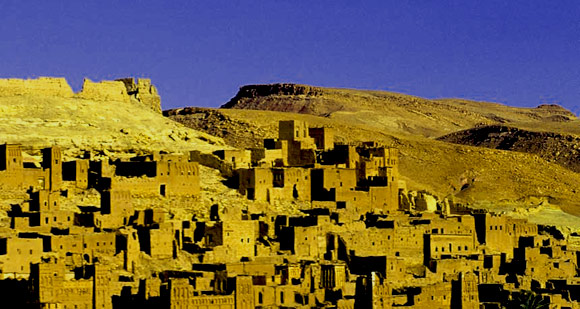History Of Morocco
In 1909, Spain made a start on the military conquest of the Rif in Morocco and two years later, Sultan Moulay Hafid called upon France to liberate Fez, which was besieged by rebellious tribes. Following French intervention, the Sultan was forced to accept a Protectorate Treaty signed on 30 March 1912, which stipulated that a sphere of influence be granted to Spain. Moulay Hafid abdicated in favour of Moulay Youssef, a man of culture, who began his reign by building a number of schools, including the one that still bears his name.

The same year, General Lyautey was appointed Resident General of Morocco. He immediately designated Rabat as capital and with the help of the urban planner Leon Henry Prost undertook modernisation of the cities of the Kingdom. In 1921, Abdelkrim El-Khattaby spearheaded the revolt of the Riffi tribes against European domination; during his Majesty's rule King Mohamed V, General Lyautey left the country in 1925. France diminished Cherifian power by opting more and more for direct rule and resistance mounted, led by members of the young urban elite. The Second World War, however marked a truce between nationalist opposition and France.
 During the War, His Majesty King Mohamed V who had become the Sultan of the Cherifian Kingdom in 1927, undertook to protect all Moroccan Jews against persecution by the Vichy regime. In 1944, the Manifesto of Independence was published and three years later, in the International City of Tangier, His Majesty King Mohamed V declared himself in favour of it, during the next five years, negotiations were entered into but without success. In 1952, the crisis between Protectorate authorities and nationalists culminated in insurrection and the Sultan was deposed, and then exiled in 1953. However, setbacks in Indo-China, long with the beginning of the Algerian War in 1954, prompted the French Government to seek a political solution in Morocco.
During the War, His Majesty King Mohamed V who had become the Sultan of the Cherifian Kingdom in 1927, undertook to protect all Moroccan Jews against persecution by the Vichy regime. In 1944, the Manifesto of Independence was published and three years later, in the International City of Tangier, His Majesty King Mohamed V declared himself in favour of it, during the next five years, negotiations were entered into but without success. In 1952, the crisis between Protectorate authorities and nationalists culminated in insurrection and the Sultan was deposed, and then exiled in 1953. However, setbacks in Indo-China, long with the beginning of the Algerian War in 1954, prompted the French Government to seek a political solution in Morocco.The Sovereign returned from exile in November 1955, paving the way for Independence, which was formally recognised by France in 1956, and then by Spain. In the early years of Independence, His Majesty King Mohamed V strove to endow the country with democratic institutions, drawing up a constitution shortly before his death in 1961.
morocco culture,moroccan food,morocco food,moroccan cuisine,morocco beaches,moroccan meal,beaches in morocco,moroccan culture,hercules cave,hercules cave morocco